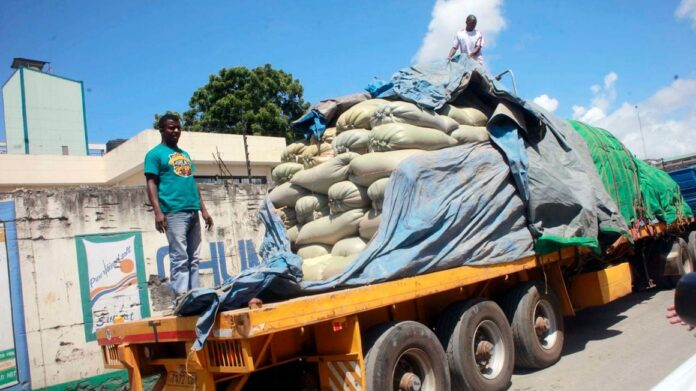Trucks loaded with maize from Tanzania were barred from crossing into Kenya after the Tanzanian authorities stopped issuing maize exportation permits.
Cross-border importers have termed the change in policy by Dodoma as a re-emergence of non-tariff barriers (NTBs), especially on food trade, even as the Community continues to seek resolution to these challenges.
“Tanzania changed its rules on maize exportation. This caused a problem in Namanga,” Miano said on Thursday.
The minister, speaking from Lusaka, Zambia, where she had accompanied President William Ruto to a Common Market for Eastern and Southern Africa (Comesa) Summit, said: “I spoke to my counterpart in Tanzania, Hon Tax, and she has assured me that the matter will be sorted out today (Thursday).”
By press time, at least 200 trucks, each carrying an average of 6,000 tonnes of maize, had been allowed to cross the border after the talks between the two countries, but a majority were yet to fully comply with Tanzania’s regulations.
Tanzania Minister for Agriculture Hussein Bashe blamed the impasse at the border on exporters, saying they lacked relevant documentation.
“There are no documents to legalise the export of the stranded maize at Namanga; and food safety and quality certificates from Kenya,” Bashe said, warning that confiscation of the consignments by the government was a possibility.
Up north in South Sudan, a similar dispute continued to simmer as 72 Ugandan trucks loaded with maize flour have been stuck at the Elegu-Nimule border crossing for a month now, after Juba said preliminary tests showed the flour had high aflatoxin levels.
While aflatoxin, caused by high moisture and poor drying methods, is a health risk, including potential to cause cancer, both sides can’t agree whose results should be relied on. Kampala says it tested the flour and approved the export, while Juba says random tests showed too high levels. Uganda this week formally protested the delays.
Last week, the EAC announced it had resolved 10 NTBs as four new ones emerged.
The 42nd Meeting of the Sectoral Council of Ministers on Trade, Industry, Finance and Investment (SCTIFI) that was held on June 6 at the EAC Headquarters in Arusha, was informed that eight NTBs remained outstanding and were at different levels of resolution.
The meeting chaired by Burundi’s Minister of Trade, Transport, Industry and Tourism, Marie Chantal Nijimbere, directed partner states to resolve all outstanding NTBs.
The two cases of trade spats have heightened fears of an escalation of food wars in the region as other EAC partner states mull ways of protecting their scarce resources.
Kenyan importers are required to register in Tanzania as Dodoma moves to implement measures announced last year to regulate food trade.
Bashe said last week that traders from foreign countries are only allowed to buy agricultural crops through locally registered companies.
“Countries that purchase crops from Tanzania, including Rwanda, Uganda, Kenya, Democratic Republic of Congo, are required to follow outlined procedures,” Bashe said.
The government last September directed that all foreign traders register their companies in Tanzania before they can be issued with export permits.
Exporters and importers are to register with the Business Registrations and Licensing Agency (Brela) and obtain tax clearance certificates and business permits allowing them to trade in grain.
The directive, which traders who spoke with The EastAfrican consider punitive and double taxation, comes as millers grapple with supply gaps that have seen the price of a 90kg bag of maize hit a historic high of Ksh6,700 ($48), pushing the cost of a 2kg packet of flour close to Ksh250 ($1.80). Read more in The EastAfrican




